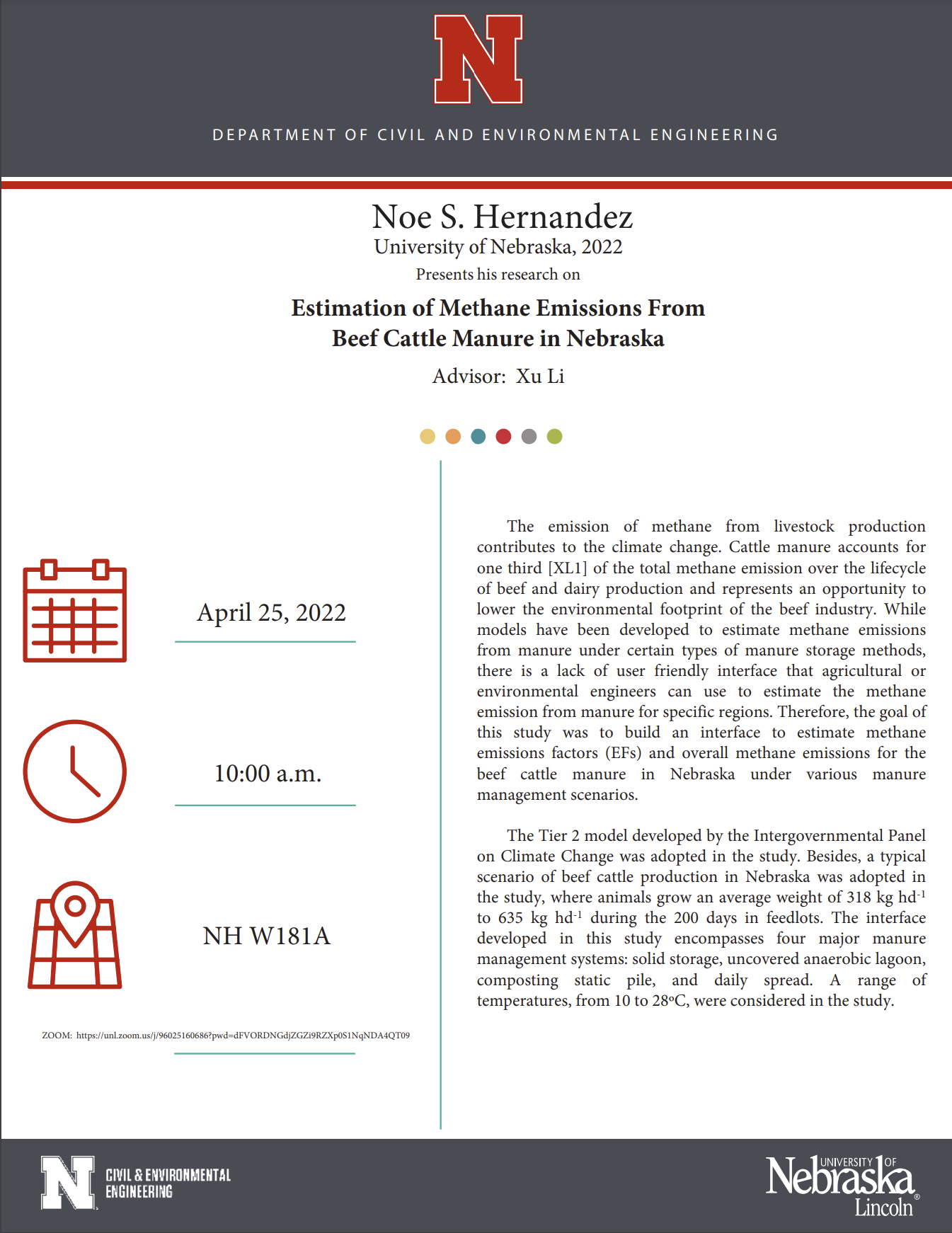
Noe S. Hernandez presents his research on Estimation of Methane Emissions From Beef Cattle Manure in Nebraska
Join on April 25, 2022 at 10am in Nebraska Hall W181A or via zoom: https://unl.zoom.us/j/96025160686
The emission of methane from livestock production
contributes to the climate change. Cattle manure accounts for one third [XL1] of the total methane emission over the lifecycle of beef and dairy production and represents an opportunity to lower the environmental footprint of the beef industry. While models have been developed to estimate methane emissions from manure under certain types of manure storage methods, there is a lack of user friendly interface that agricultural or environmental engineers can use to estimate the methane emission from manure for specific regions. Therefore, the goal of this study was to build an interface to estimate methane emissions factors (EFs) and overall methane emissions for the beef cattle manure in Nebraska under various manure management scenarios.
The Tier 2 model developed by the Intergovernmental Panel
on Climate Change was adopted in the study. Besides, a typical scenario of beef cattle production in Nebraska was adopted in the study, where animals grow an average weight of 318 kg hd-1 to 635 kg hd-1 during the 200 days in feedlots. The interface developed in this study encompasses four major manure management systems: solid storage, uncovered anaerobic lagoon, composting static pile, and daily spread. A range of temperatures, from 10 to 28ºC, were considered in the study.
More details at: https://unl.zoom.us/j/96025160686